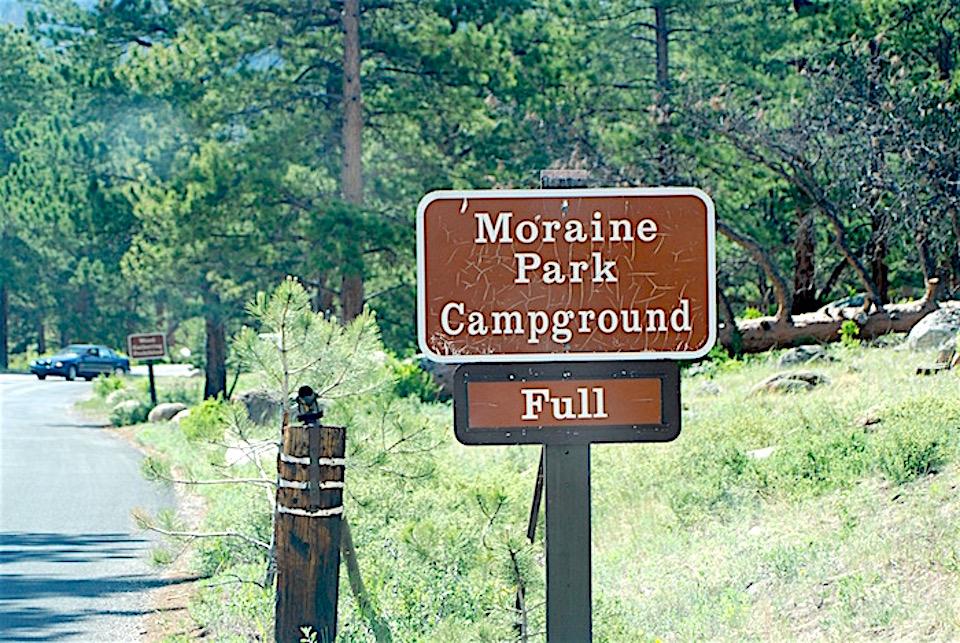
Campground fees could go up at Rocky Mountain National Park/Kurt Repanshek file
Higher camping fees could be in the future at Rocky Mountain National Park, where park staff is considering a slight increase in campground fees.
Campground fees are based on comparable fees for similar services in nearby campgrounds. Under the structure being considered, summer campsite fees would go from $26 to $30 per night, while winter camping fees would go from $18 to $20 per night.
The park also is proposing a flat rate at group sites at Glacier Basin Campground. Currently, the fees are $4 per person, per night. The proposed flat rates would be as follows: small group site (9-15 people) $40; medium group site (16-25 people) $50; and large group site (26-40 people) $60.
Camping is very popular in Rocky Mountain National Park. There are five campgrounds with a combined 570 sites open during the summer. The park’s three reservation campgrounds, Moraine Park, Glacier Basin and Aspenglen, normally fill up six months in advance. The park’s two first-come, first-served campgrounds, Longs Peak and Timber Creek, fill quickly most days. Timber Creek Campground, located on the west side of the national park, normally fills up last. Moraine Park Campground remains open during the winter, with 77 sites available.
The Federal Lands Recreation Enhancement Act is the legislation under which the park currently collects entrance and amenity fees, including camping. This law allows national parks to retain 80 percent of the fees collected for use on projects that directly benefit visitors. The remaining 20 percent is distributed throughout the National Park System. Since the beginning of FLREA and its predecessor the Recreational Fee Demonstration Program, the park has spent millions of dollars in repairs, renovations, improvements and resource restoration.
Ninety percent of surveyed park visitors have continually expressed support for this program. Some of the projects funded through these fees at Rocky Mountain National Park include the park’s visitor shuttle system, which last year transported over 700,000 visitors throughout the Bear Lake Road corridor and to and from Estes Park; renovation of all restroom facilities throughout the park’s campgrounds; extensive hazard tree mitigation near facilities such as campgrounds, parking lots, road corridors, housing areas and visitor centers; and hiking trail enhancements including maintenance and reconstruction on much of Rocky’s 350 miles of trails.
“Camping is very popular in Rocky Mountain National Park. We want to keep our campground fees affordable and provide visitors with the best possible experience,” said Superintendent Darla Sidles. “We feel that our proposed campground fee change is an incredible value. Plus, 80 percent of those funds stay right here in Rocky to benefit visitors.”
Park staff are seeking feedback about the proposed fee schedule. You can email comments to [email protected] by September 27. The current campground fees have been in effect for the past four years. Feedback the park receives will help determine how and when a campground fee increase may be implemented.



Add comment